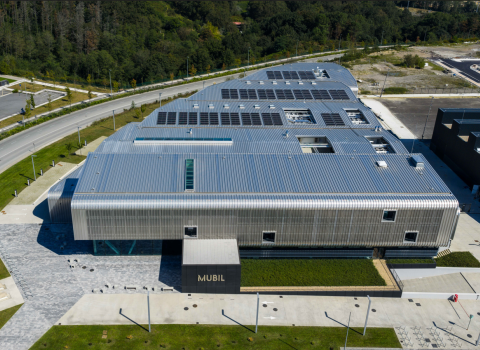The Bundesanstalt für Materialforschung und -prüfung (BAM) is building a test platform for the safe operation of hydrogen and hydrogen-natural gas pipelines at a cost of 3.8 million euros. The facility is intended to provide industry and gas grid operators with the opportunity to solve technical issues quickly and in a practical manner, and overall to significantly accelerate the market ramp-up of hydrogen in Germany. The first parts of the test platform, which consists of various modules and includes a range of testing options that is unique in Europe, are scheduled to go into operation at the beginning of 2023.
In order to achieve the climate targets and reduce dependence on fossil fuels, green hydrogen has a decisive role to play. For the storage and transport of the gas, in turn, a secure pipeline network is indispensable. In addition to the construction of a new gas grid infrastructure for pure hydrogen, the rededication of existing natural gas grids is currently being discussed. A certain percentage of hydrogen is to be fed into these networks.
Before this can happen, however, a number of safety-related issues must be clarified to ensure the safe and long-term operation of the existing infrastructure. These include, for example, the suitability of the materials in the historically grown pipeline network, which is several thousand kilometres long, as well as hundreds of thousands of interfaces to households and businesses. Hydrogen molecules, which are particularly small, can diffuse into materials and lead to cracks and other defects.
The clarification of these questions and the derivation of suitable safety measures are only possible through tests under real conditions. They are the focus of BAM's holistic test platform. Among other things, it will contain modules for testing the absorption, permeation or accumulation of hydrogen in materials and components as well as online precision analytics.
"By setting up the test platform, we are making an important contribution to the rapid transition towards a hydrogen economy," explains BAM President Prof. Dr. Ulrich Panne. "On the one hand, we are thus ensuring the safety of the systems, which is indispensable for their economic viability and their acceptance by the public. At the same time, we are helping industry and grid operators to solve technical issues."
In addition to the construction of the test platform, BAM is building further comprehensive testing facilities for modern hydrogen technologies on its twelve square kilometre Technical Safety Test Site in Brandenburg. Among other things, a high-pressure test stand up to 1000 bar, a test field for liquid hydrogen and another test platform for the investigation of all technical processes around a hydrogen filling station are planned. The test area is part of the hydrogen competence centre H2Safety@BAM, which already employs around 130 BAM staff.
This article was first published on 7 April by BAM.





 A unique international forum for public research organisations and companies to connect their external engagement with strategic interests around their R&D system.
A unique international forum for public research organisations and companies to connect their external engagement with strategic interests around their R&D system.